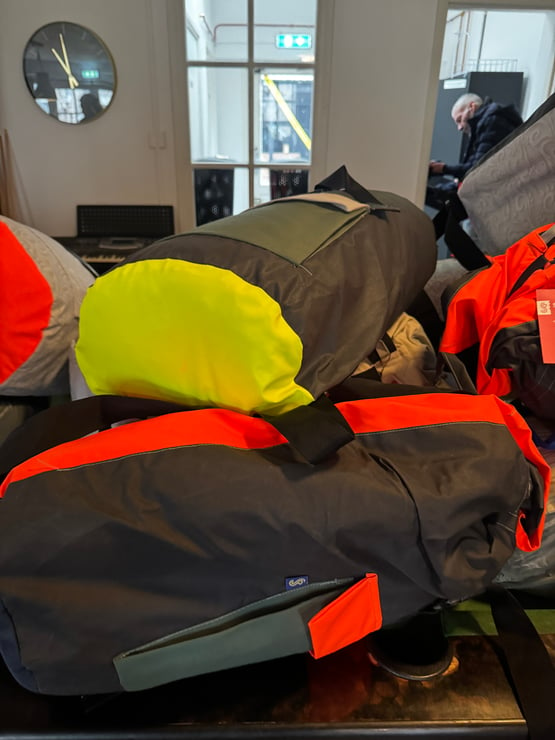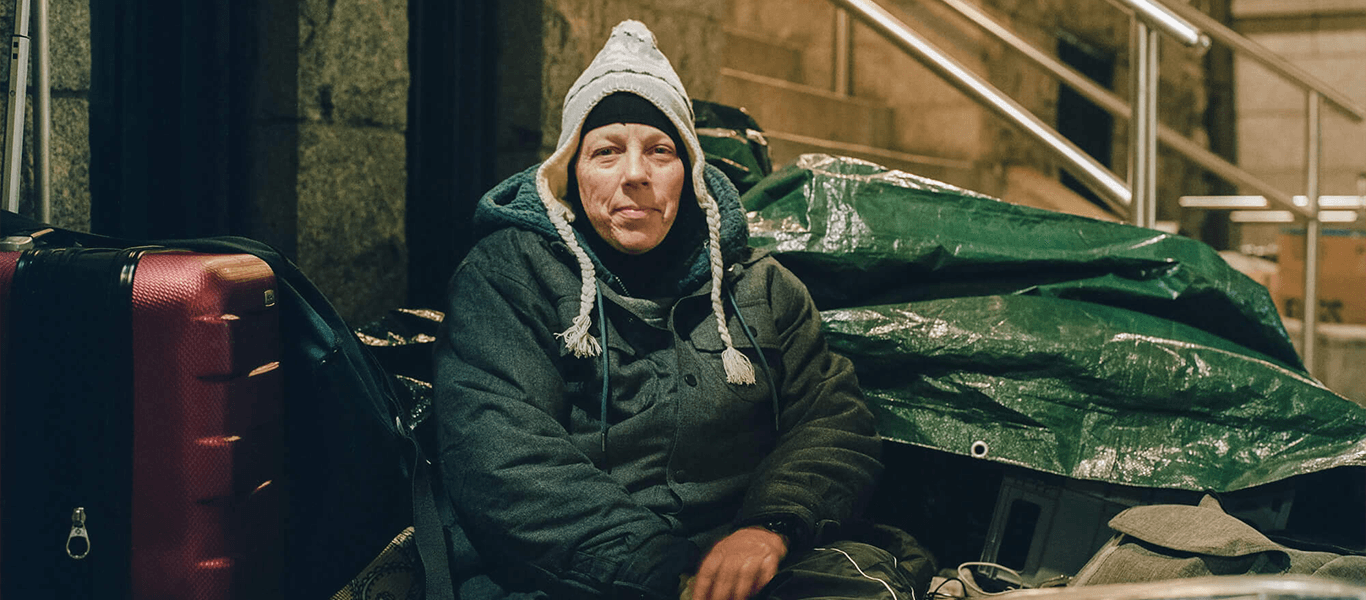In the southern German city of Augsburg, the number of people without a safe place to sleep is growing. Under bridges, near stations, or in abandoned corners, they try to make it through the night, often without protection, without rest. One of those places lies next to Augsburg-Oberhausen train station. Behind the railings lie mats, blankets, and sleeping bags, left behind or cleared out during evictions by the city. Together with Johanniter-Unfallhilfe, Johanniter Hilfsgemeinschaften, and Drogenhilfe Schwaben, we handed out Shelterbags to people who had no roof over their heads that night. Just five in number, small perhaps, but immense in meaning.
Medical help and a listening ear
Every Thursday, the Johanniter medical bus stands in Augsburg-Oberhausen, offering free medical care on the streets. A team of dedicated volunteers and doctors provide help and support wherever it’s needed. That day the bus was stationed near beTreff, the drop-in center run by Drogenhilfe, where people can come for a cup of coffee, personal advice, or simply a moment of rest.
A group of people gathers outside the door. Some have just lost their homes, others struggle with addiction or health problems. Shelter options in Augsburg are limited and strictly regulated. Those without valid papers, or who have already been in the system too long, often fall through the cracks. A brief police intervention disrupted the gathering that afternoon, but afterwards open conversations and meaningful encounters emerged. Life on the street is harsh, but humanity is strong. People listen. They help. They share.
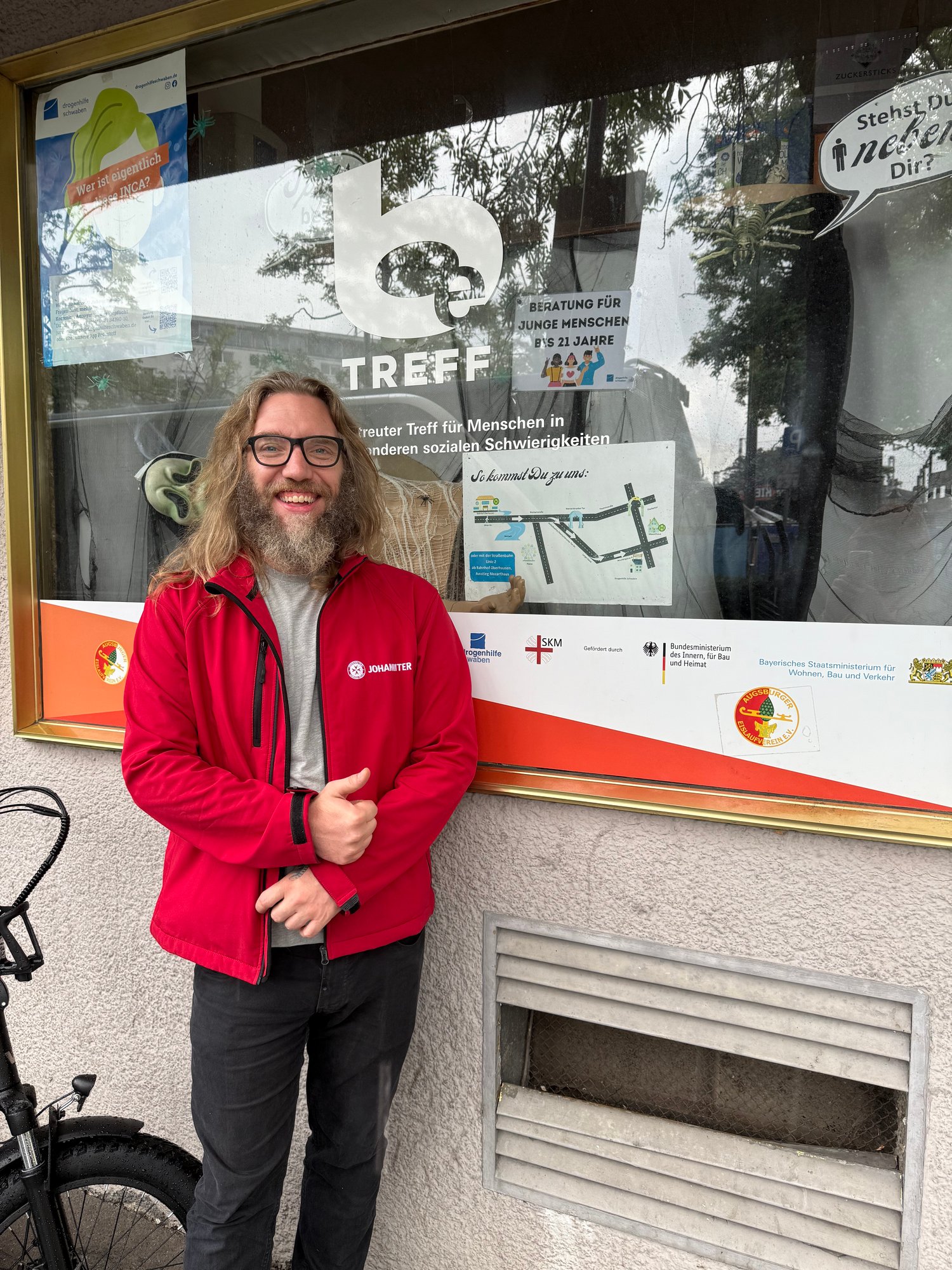
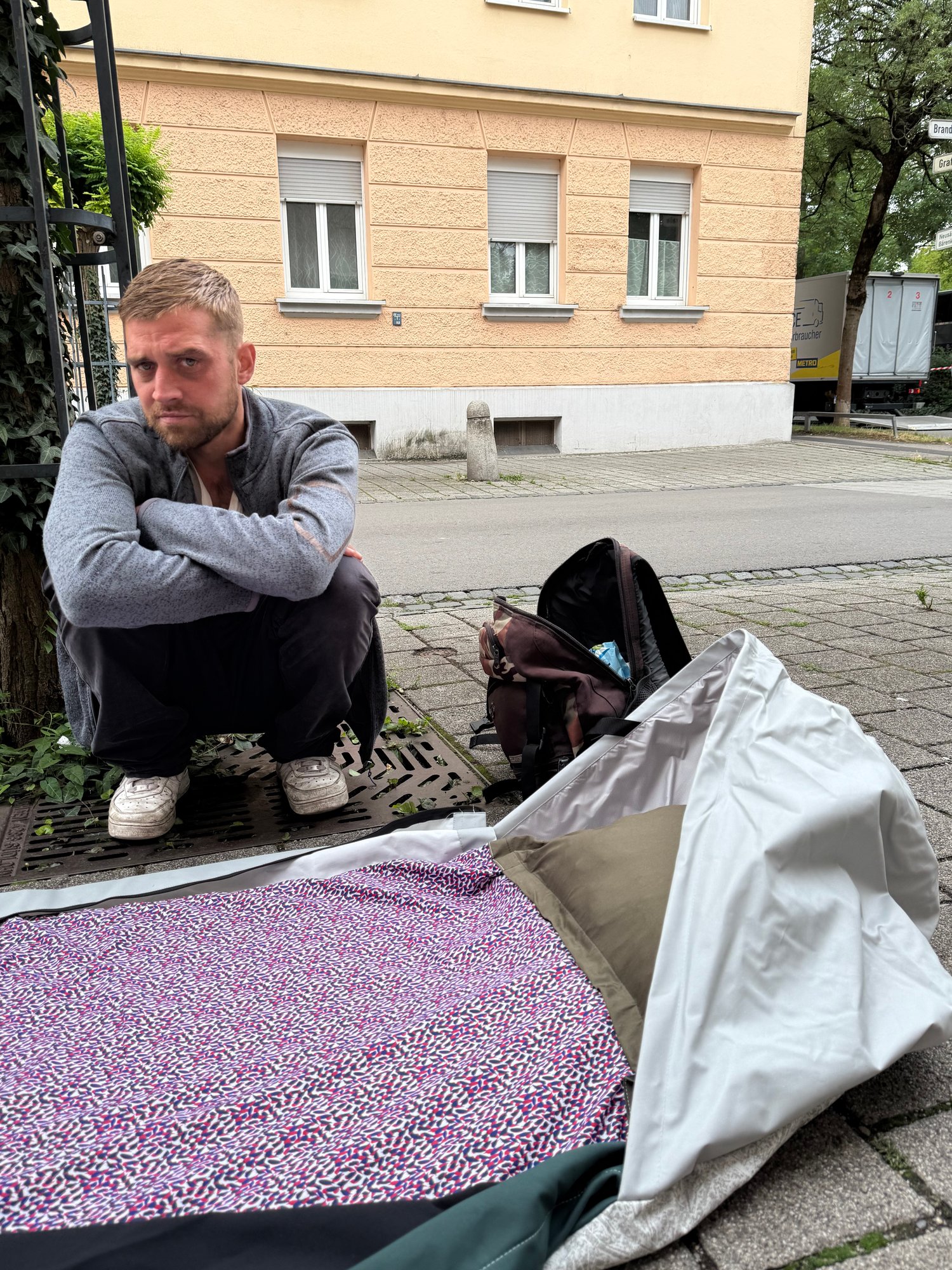
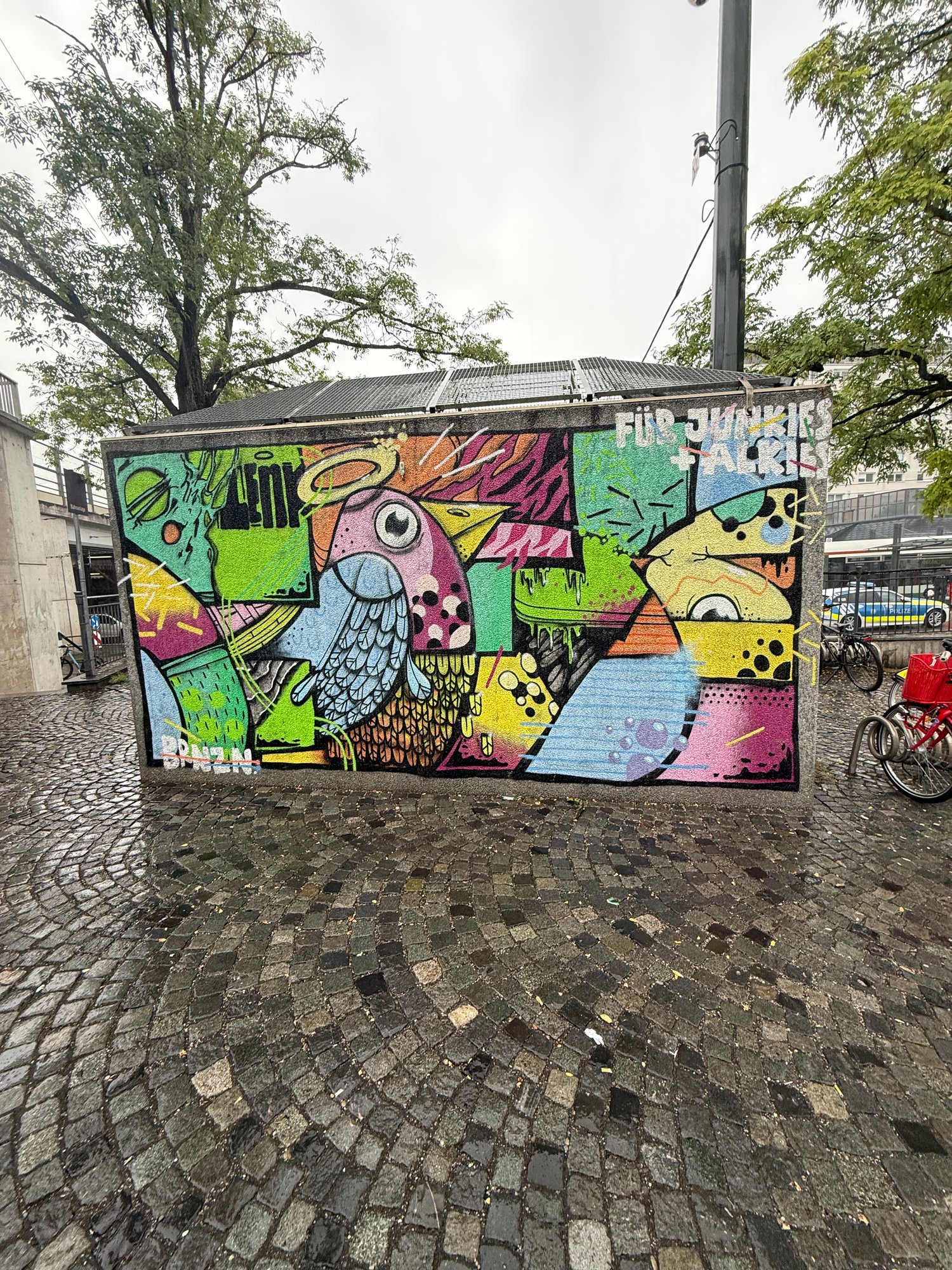
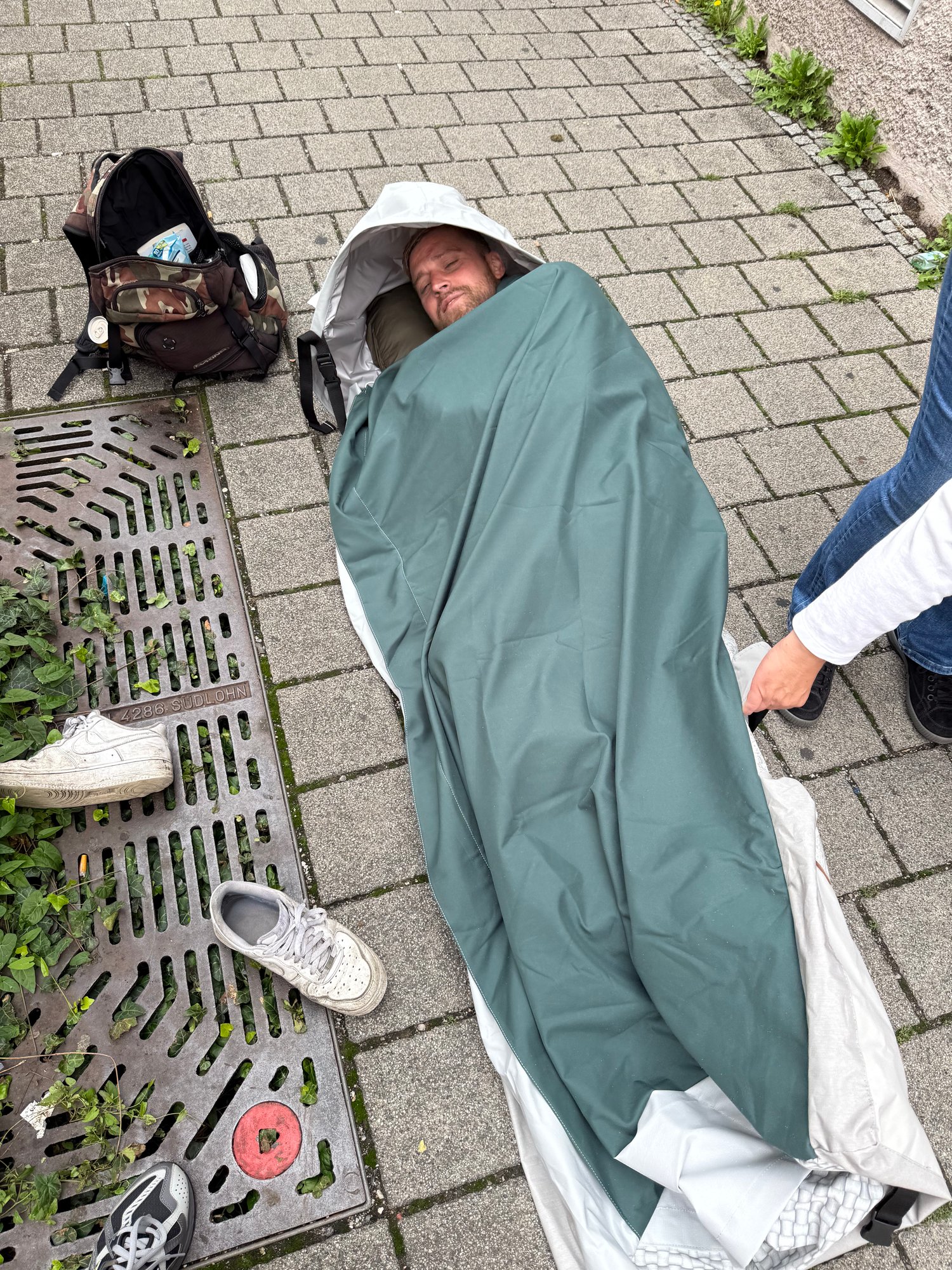
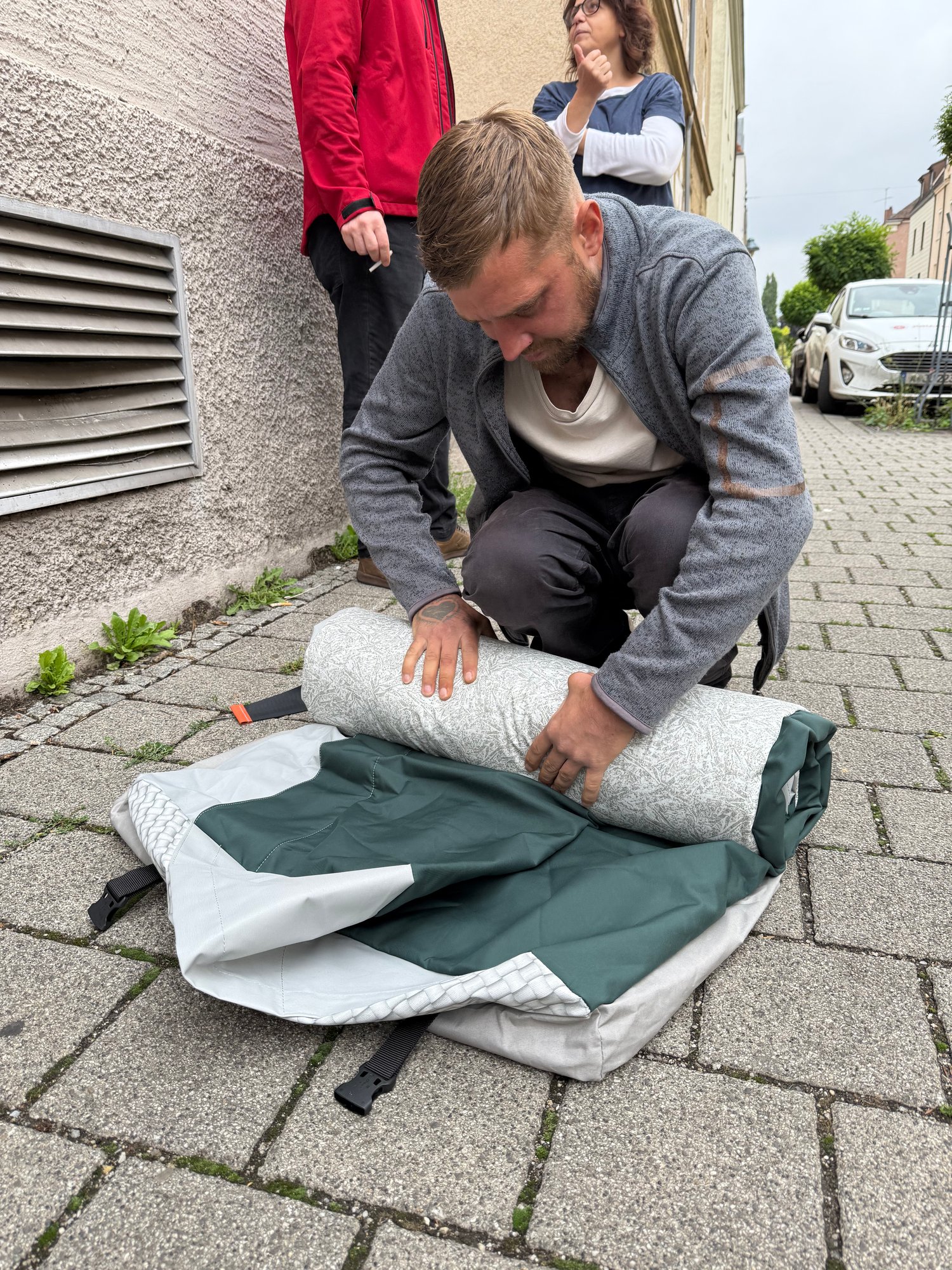
A moment of rest and recognition
Rolie is 36 years old and has been living on the streets for over a year. The loss of his parents led him into addiction, which eventually resulted in a period of detention. An attempt to quit methadone on his own led to legal problems—he didn’t have a medical certificate when he was checked. Since then, he searches every day for safety.
When he receives a Shelterbag that afternoon from Katrin Wimmer of Drogenhilfe Schwaben, he is visibly moved. He immediately rolls it out on the pavement, carefully inspecting each feature: the integrated sleeping mat, the hood that shields his head from wind and rain, and the large zippered pocket on the outside.
I’m looking forward to the night for the first time
- Rolie, Recipient Shelterbag in Augsburg -
He places his jacket as a pillow in the head section and is surprised to find that even his backpack fits inside. Everything can come safely with him; nothing has to be left behind.
Before leaving, Rolie carefully rolls the Shelterbag back up and proudly slings it over his shoulder. With a firm embrace, he says goodbye.
A city of challenges and commitment
In Augsburg, an estimated 300 to 400 people are homeless, with around thirty of them actually sleeping on the streets. Shelter facilities are temporary and often have a maximum stay of 90 days. After that comes a mandatory break, which creates stress and disrupts stability. In Bavaria, there are no official consumption rooms for drug users; public restrooms, parks, and abandoned spaces are used instead.
Still, solidarity is strong. A neighbor brings soup, someone else shares bread. Volunteers like Emil Jarndt dedicate themselves to improving resources. He campaigns for a women’s shelter where dogs are welcome too. “Because if all you have left is your dog, you won’t leave it behind,” he says with determination.
.jpg?width=1000&height=1333&name=20250725_095647775_iOS%20(1).jpg)
Protection, trust, dignity
The five Shelterbags we distributed that afternoon are now being tested further by Drogenhilfe Schwaben. How are they used? What do they mean in practice? The first responses speak volumes.
Each Shelterbag offers not only protection against cold and rain but also something less tangible: trust. The feeling that someone sees what you need. That you matter.
For Rolie, it meant a safe place for the night. For us, it reaffirmed why we do what we do. One Shelterbag. One night. One person who is allowed to feel human again.















